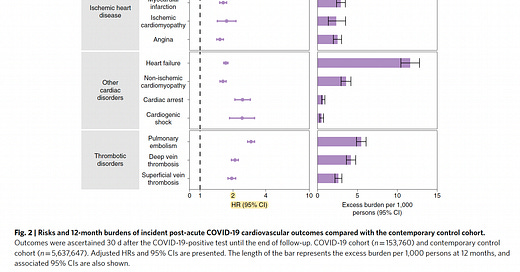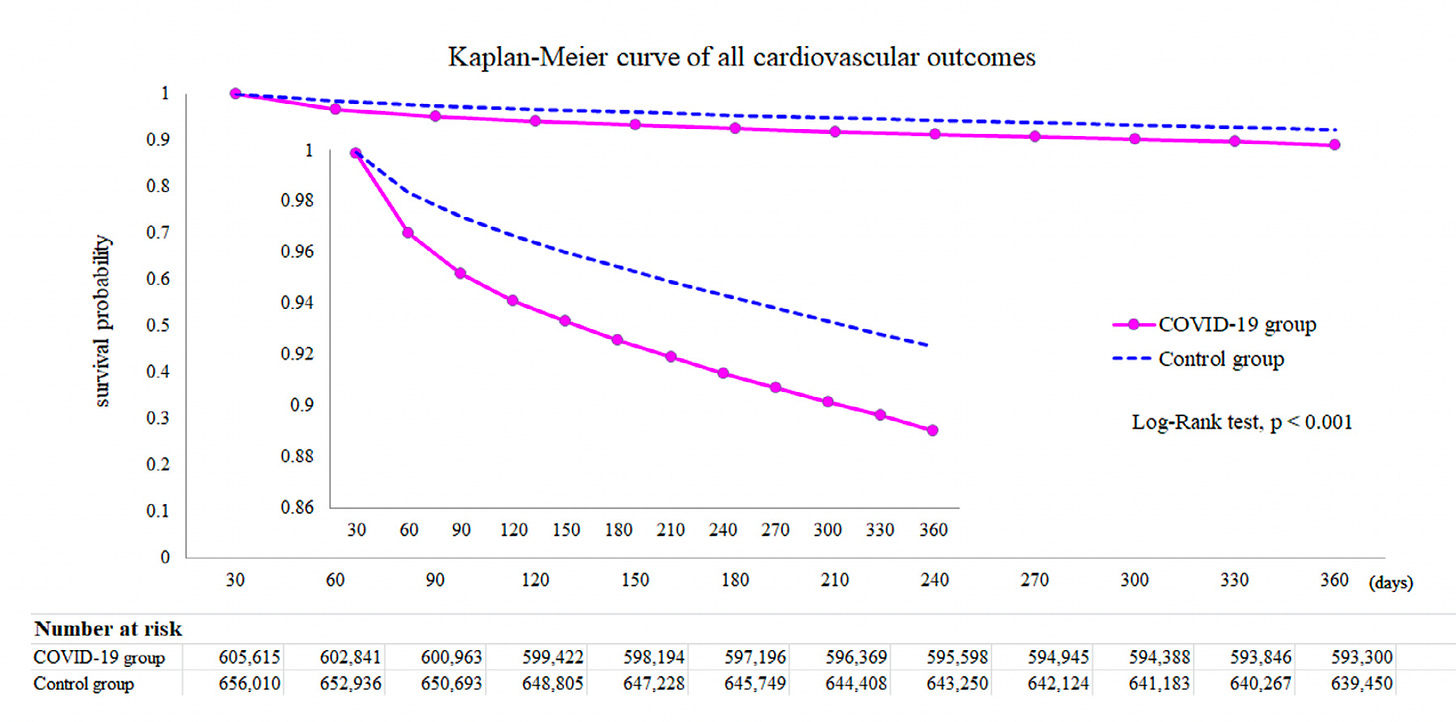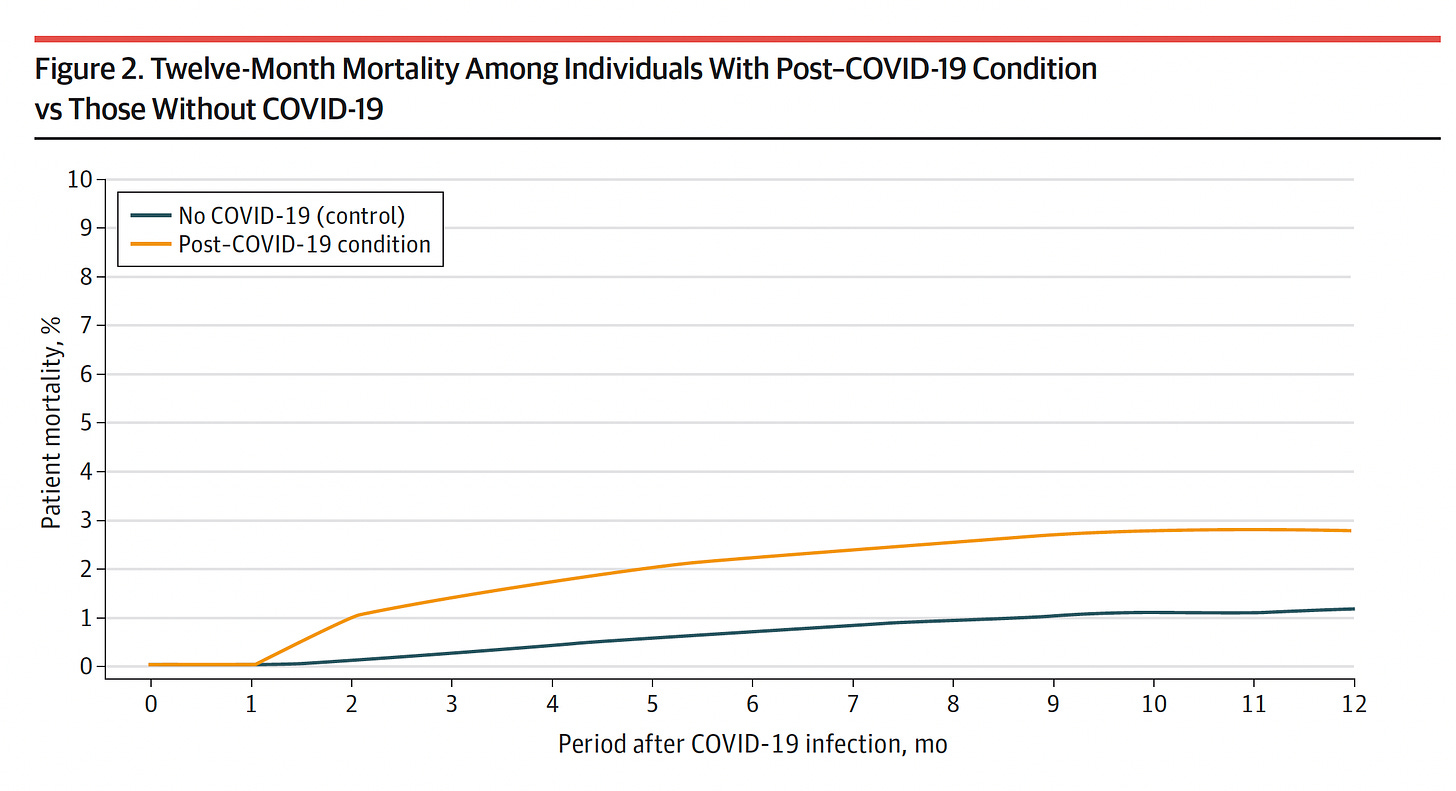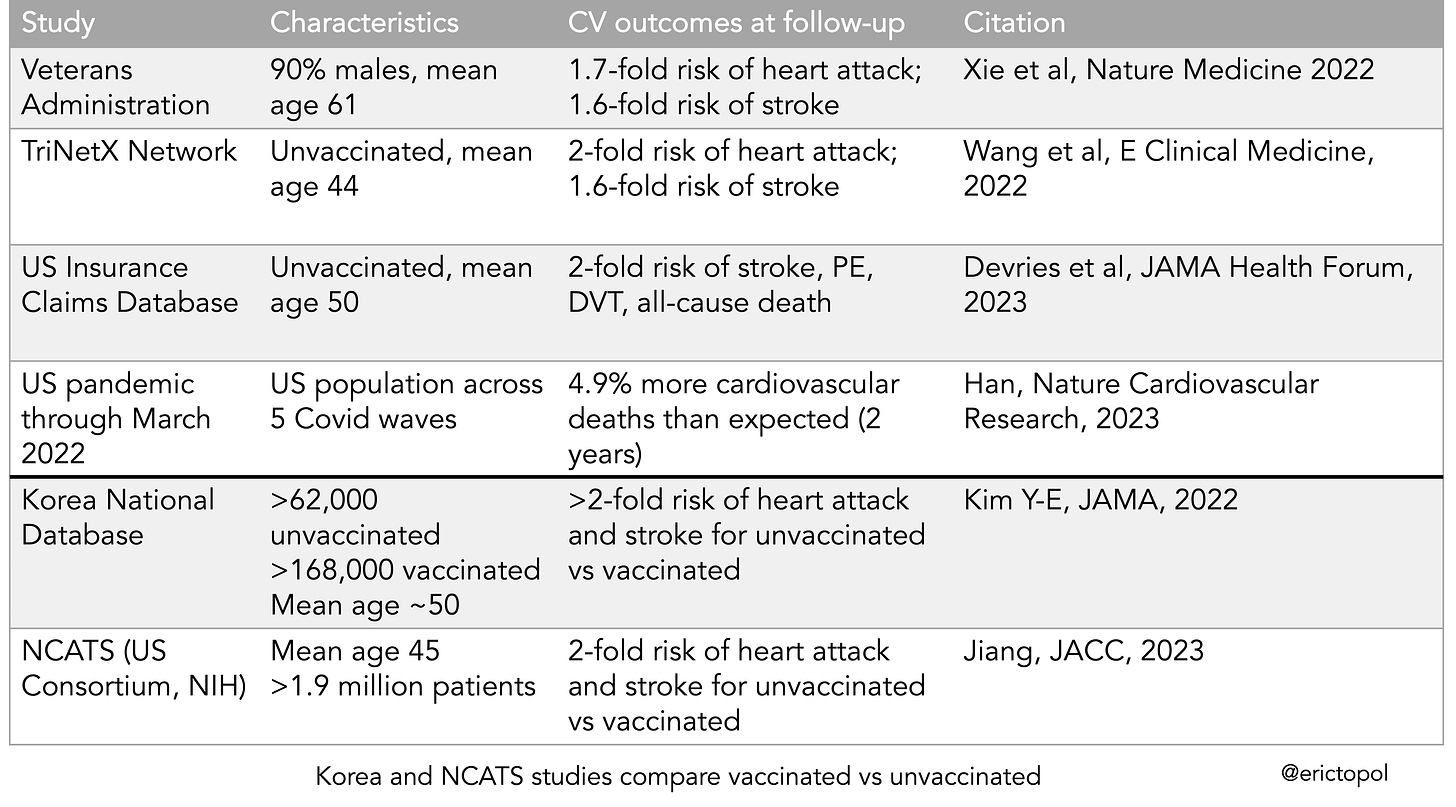Back in February 2022, Ziyad Al-Aly and his colleagues from Washington University published a seminal paper about major adverse cardiovascular outcomes at one year following Covid infections. It was based upon nearly 154,000 patients with Covid (median age 60, 90% male) from the US Department of Veteran Affairs with 2 control groups each with over 5 million people. Importantly, these were events after 30 days from infection. There was a 1.7-fold risk of heart attack and 1.6-fold increased risk of stroke, among the other adverse outcomes, as shown below, for people with Covid versus controls.
Subsequently, Wang and colleagues published on nearly 700,000 people with Covid compared with a control group of 2.25 million people without Covid, of whom there were matched controls by propensity analysis for the people who had Covid. The results were remarkably similar to the Al-Aly Nature Medicine report with a 1.6-fold increased risk of stroke, a 2-fold higher risk of acute coronary disease, and the divergent curves below for major adverse cardiovascular outcomes. Of note, unlike the Veterans Affairs cohort, this population was much younger, mean age of 44, and 57% were female. Again note the differences were after 30 days, post-infection.
Today a new study from a private insurance claims database was published by DeVries and colleagues. It compared 13,345 people with Covid matched with 26,870 control without Covid. The individuals were a mean age of 50 and 58% were women. Like the prior 2 studies, these were people unvaccinated. Accounting for differences in risk factors pre-Covid, there was yet another independent replication of a 2-fold increase in stroke risk, >2-fold increase in all-cause mortality, and other major cardiovascular outcomes including pulmonary embolism, deep vein thrombosis, and other outcomes as seen below, whether or not with Covid individuals had been hospitalized (Table below).
Here is the graph for all-cause mortality excess (2.8% vs 1.2%), which again shows the separation after 30 days from Covid infection
The finding of excess major cardiovascular outcomes during the Covid pandemic is highly consistent with a report this week in Nature Cardiovascular Research on the whole United States population through March 2022. This report focused on cardiovascular deaths, and as shown below, demonstrated the excess throughout the first 5 waves of the US pandemic that occurred well past each of the surges. There were over 90,000 more cardiovascular deaths than what would have been expected.
One question from these 4 reports is whether the excess in major cardiovascular outcomes is influenced by vaccination, since none of the studies above provided insight about that important matter. We have 2 recent studies that replicate, one from South Korea’s national database and the other from the United States NIH Consortium known as N3C (National COVID Cohort Collaborative, National Center for Advancing Translation Sciences), both showing approximate halving of heart attack and stroke for people vaccinated compared with matched unvaccinated controls.
I’ve tried to summarize these 6 studies in the Table below
Every one of these studies has limitations, including biases and confounders, with best efforts of the researchers to adjust for these issues. When I review data from multiple sources, I look for consistency in magnitude and direction. That’s what we’re seeing here.
As far as a mechanism for the excess of late (beyond 30 days from Covid) major cardiovascular outcomes, it has been well established that there is both endothelial lining of blood vessels) inflammation and the inter-dependent or direct hyper-coagulability that can be induced by Covid. That is to say, there are multiple paths by which Covid predisposes towards clotting. And microclots are one of the mechanisms that have been identified as an underpinning for some people suffering from Long Covid. Here’s a good graphic to illustrate pro-thrombotic endothelial dysfunction induced by SARS-CoV-2
What does all this mean?
Al-Aly’s first study has now been replicated by others. It’s an inconvenient truth that Covid is associated with an excess of heart attacks and strokes beyond the first month of infection. That can no longer be ignored or refuted. The positive outlook is that these studies zoomed in on patients infected in the pre-vaccine era, and subsequently we’ve seen that vaccinations were linked with halving the adverse outcomes. But even with vaccination the rate isn’t zero.
It’s all the more reason to avoid getting Covid or a reinfection. While it is likely we have moved to an endemic state in the US, with 90% cases accounted for by the XBB.1.5 variant, and no increases in hospitalizations or deaths for many weeks, it doesn't mean Covid is over. The virus is still circulating and will continue to do so for years ahead. That’s also why we need better ways to protect against infections, like nasal vaccines. While we’re waiting for those (which should have already been validated and made available), please continue to take caution. I discussed my practice with Dr. Robert Wachter this week for UCSF Medical Grand Rounds which is freely available to all.
Thanks for reading Ground Truths. Please subscribe and share the post if you think it is helpful.









